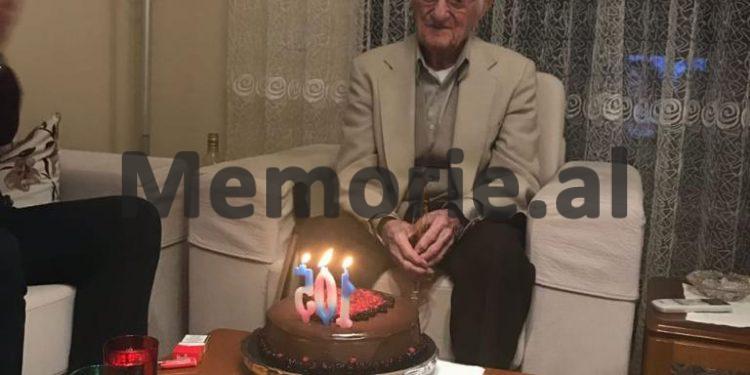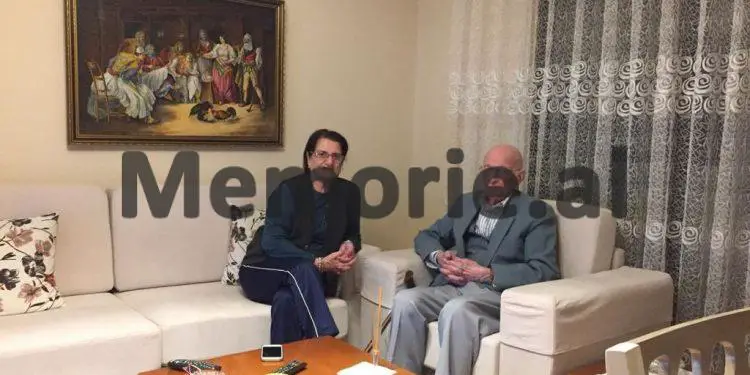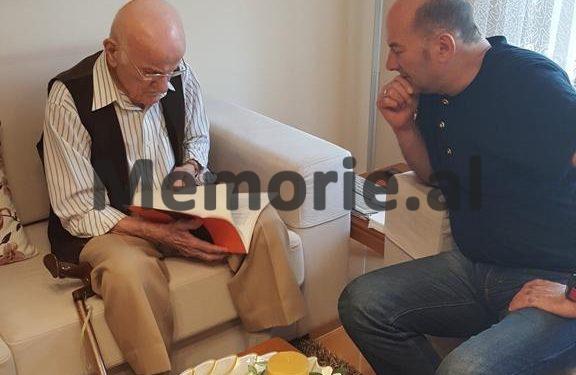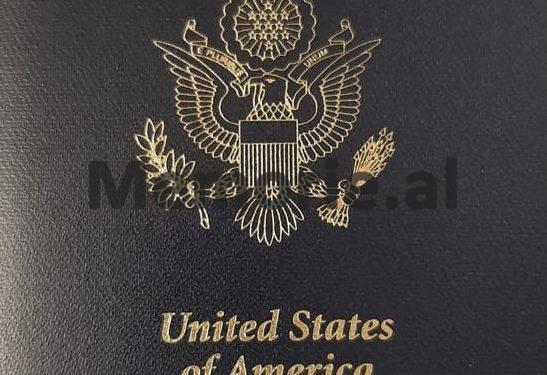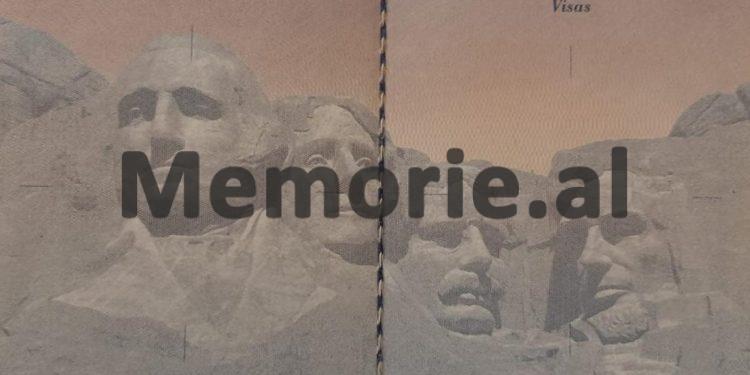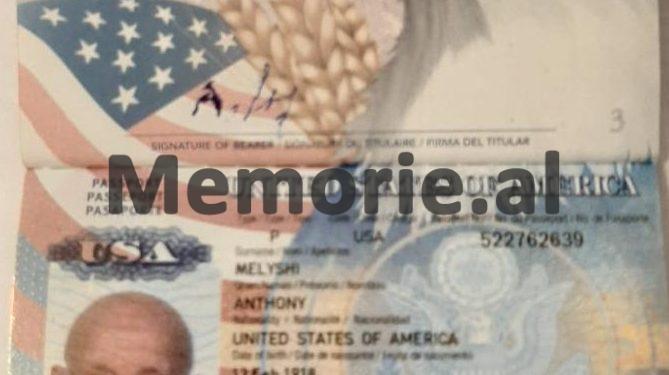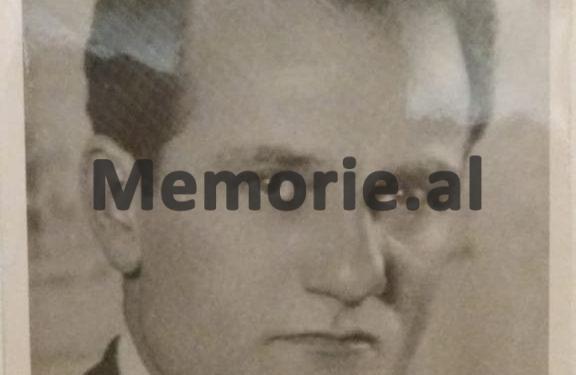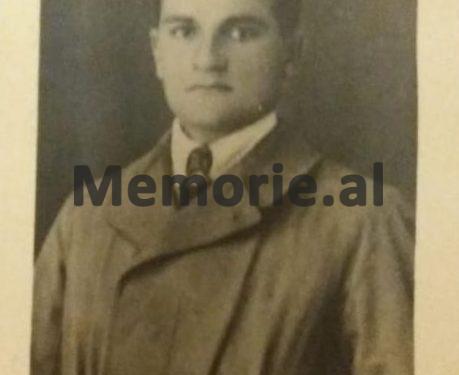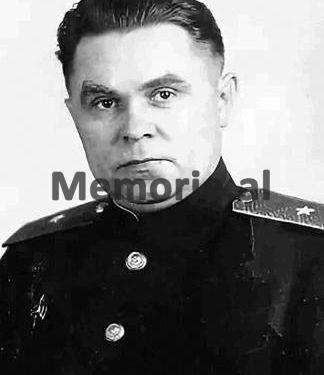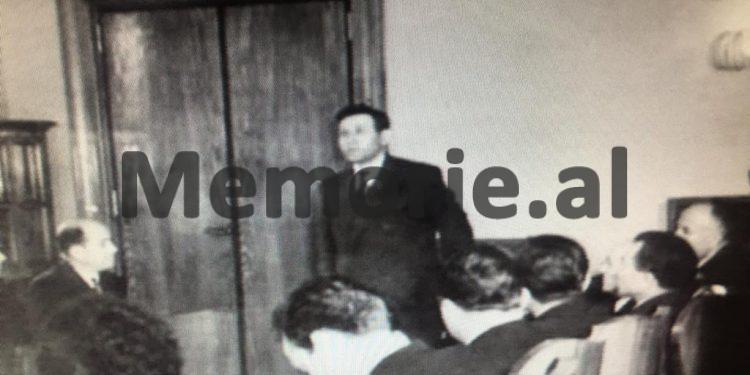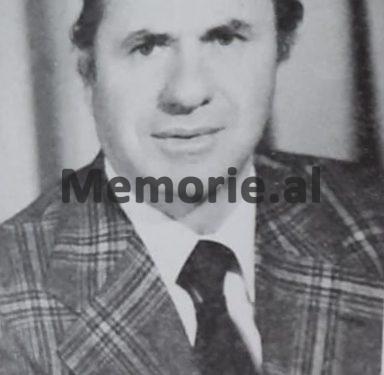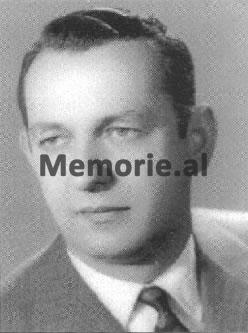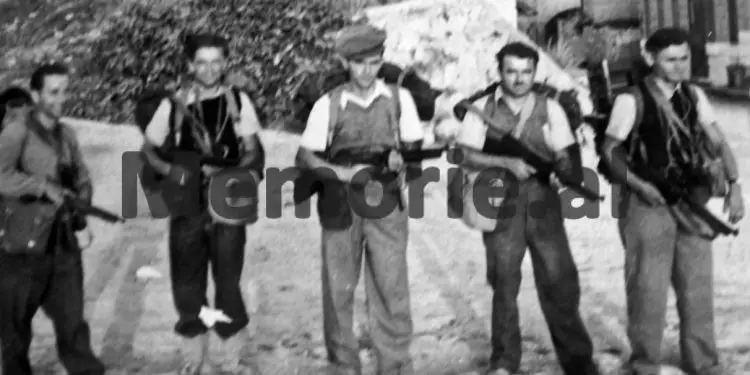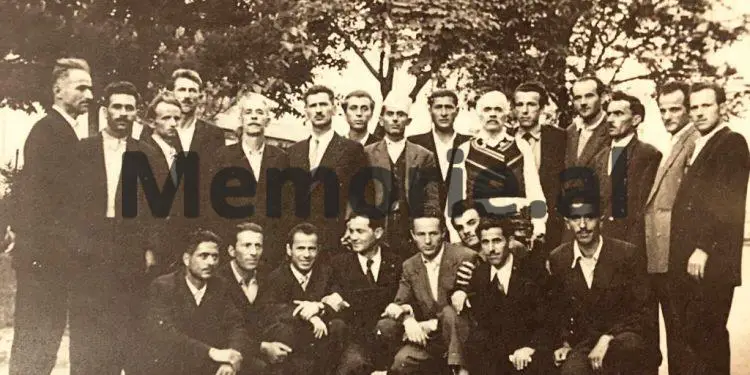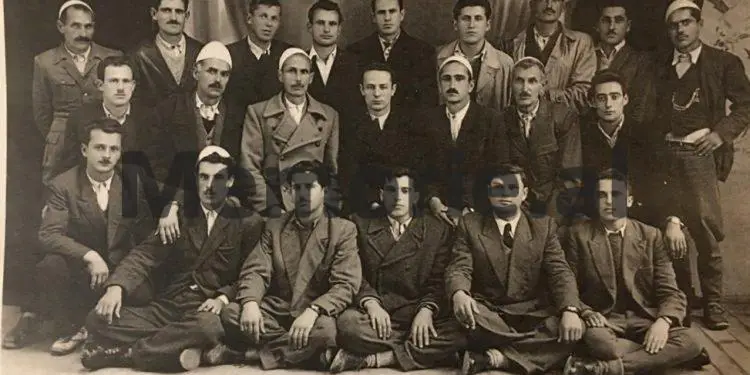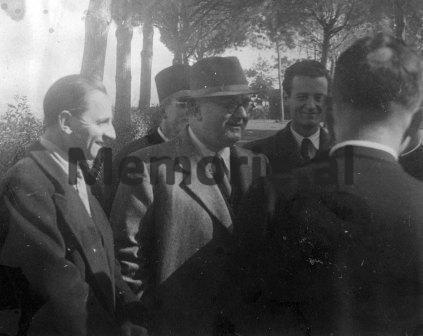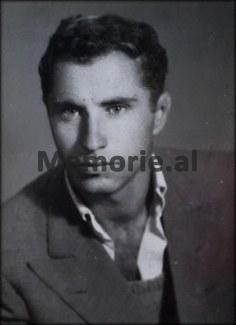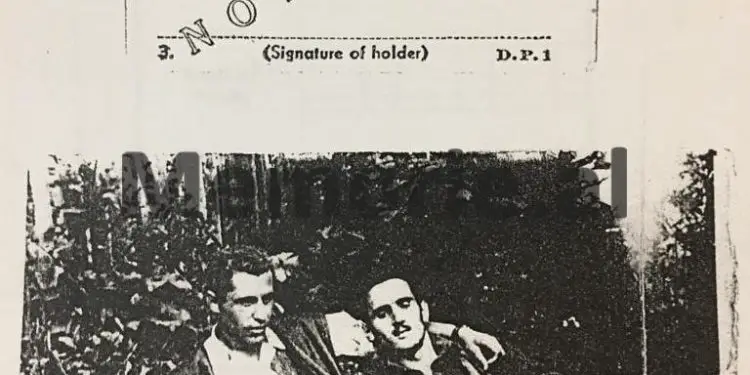Dashnor Kaloçi
Memoria.al publishes the rare and unknown story of Ndue Mëlyshi from Mirdita, where his father, Gjoni was the bayraktar of Kthella, while his brother, Nikolla during the period of the Bird Monarchy served as a soldier in the Royal Guard, and the son their uncle, Frroku, in the Gendarmerie weapon. How the roads were temporarily divided between the two cousins during the occupation of the country, after Frroku fought against the partisan forces in the South of Albania and at the end of the War, he joined Gjon Marka Gjoni in the city of Shkodra, taking revenge for the murder of Lieutenant Colonel Adem Boletini (son of Isa Boletini), from the communists, while Nikola became a partisan, joining the VII Assault Brigade commanded by Gjin Marku, Ramiz Alia and Adil Çarçani, fighting all the way to Visegrad, Yugoslavia. Ndue Mëlyshi’s rare testimony of how he was forced to flee in 1947 with his brother Captain Nikoll Mëlyshi, Pal Mëlyshi’s father (the main character in the movie “Operation Fire”) after the communists burned down the towers and the whole family with women and children were interned in the camps of Kruja, Berat, Tepelena, etc. How did Nduja stay in the mountains of Mirdita in the struggle with the Pursuit Forces until ’49 when he was forced to flee to Yugoslavia together with 53 members of the anti-communist resistance, after the murder of Bardhok Biba, after his brother Lleshi and uncle’s son were shot , Frrok, whose body was cremated with kerosene to terrorize the people of that province. Ndue parachuted into Albania after being trained by the Americans in the Italian camps and wandering through the mountains of Mirdita and Puka until 1952, when he finally left Albania for Italy, Germany and the USA, where he lived until in 1992, when he first returned home to his family (living in the city of Shkodra with his daughter, Bardha Mëlyshi, never to return to the US after 2014) until he passed away on July 31, 2020 , at the age of 109 and a day later was transferred to the last apartment.
“Bardhok Biba was sentenced to death by our organization and I am sorry that I did not have the opportunity to kill him with my own hand, as he was Stalin’s puppy and not Albanian.” After the answer given by Mark Jak Bajraktari, Major UDB arkarkiç, did not continue the process of questioning our group of Albanians and closed it at all. This made that a few days later, in June, in the camp of Nis where we were, the UDB Major, Cedo Mihjovic came and called Ndue Pjetër Gjonmarku, Ndue Bajraktari, me (Ndue Mëlyshin), Mark Dodë Lleshjan, Marka Jak Bajraktarin and Pjetër Kol Preçin. After calling us in the office, he told us that during the period we were in camps and prisons, we had gone through difficulties, because according to him, the situation in Yugoslavia was still turbulent, but we should not be too upset, as the main thing was the fact that we were alive, because in not a few cases our lives were in danger. After this introduction, he went directly to the topic, telling us that he had personally intervened in our case and had talked to the Ministry of Interior, to release us from prison, on condition that we form six small groups with by three people and to enter Albania with secret missions ”. The man who speaks and testifies for Memorie.al is Ndue Mëlyshi, originally from Kthella e Mirditës, a former member of the anti-communist resistance forces, who fled Albania in 1949 and parachuted into Albania after being trained by the Americans in the camps of Italy. Originally returned to Albania in 1992 after four decades of emigration, Ndue Mëlyshi, from 2014 lived in the city of Shkodra with his daughter, Bardha Mëlyshi, until he passed away on July 31, 2020, at the age of 109 and on 1 August was escorted to the last apartment. Although he carried on his shoulders more than a century and a decade of his life, even with endless deprivations and vicissitudes, spending almost half a century away from his family, (wife Mara Markajoni and three daughters: Bardha, Lizeta and Agetina, which left them quite small and found them with children), memory and memory never betrayed him until the last minutes when he disappeared (on July 31, 2020) sitting in his armchair browsing the daily newspapers. Recently, Memorie.al managed to get a long interview with Mr. Ndue Mëlyshi, (recording it with video) in order to publish it on August 7, on the occasion of the sensational event of the murder of Bardhok Biba, an event that terrorized Mirdita and led to his departure and that of 53 members of the anti-communist resistance from Albania. During the conversation, his extraordinary memory as a “living folder”, sometimes came to his aid and notebooks where for years in a chronological way he has thrown pieces and moments from his troubled life, or the book “Mountain Life”, which he published several decades ago when he was in political asylum in the US. Conveying to the Mëlyshi family the condolences for the loss of their beloved man, in this article we are publishing in full the whitewashed interview we received recently (with the unstinting help of his daughter, Mrs. Bardha Mëlyshi), completing even with some of his notes.
Continued from the previous issue
Mr. Ndue, events where you were besieged and rat at gunpoint with the Pursuit Forces that were kept besieged for more than eight hours, did it make a fuss among the people?
As usual, the communists did not popularize those events where they suffered great defeats and losses in people, and tried to keep them as secret as possible, and so they did with those events where they kept us surrounded. The next day, after withdrawing the dead and wounded, the communist forces went back to the scene and surrounded it with numerous patrols and forces, not allowing anyone to approach the area in a remote perimeter.
What about the Pursuit Forces then put in your search?
The Pursuit Forces after returning to the scene where they had kept us for more than eight hours surrounded and made small checks following the blood stains of our wounded, Ndue Nikolli, in those searches they found the radio that we had hidden so quickly. Likewise they did not remove their ambushes, but kept them secret, thinking that we would go back there again to get something we had left there in a hurry to flee upstairs, to escape the fire of their weapons. And so it really happened.
Why, you went back to that place?
We returned because we had left the radio there and without it we could not carry out any kind of mission.
After how many days did you return there and how many of you were there?
We returned there after nine days, on the evening of March 29, at around six o’clock after dark and the group consisted of Ndue Pjetër Gjonmarkaj, Llesh Marka Doda, Gjon Marka Çupi, Nikoll Frrok Zefi and me.
What happened after your group went there?
When we got there we did not see the Pursuit Forces, as they have been in positions waiting for us for days and they have let us get inside their encirclement. The moment we went to the place where we had the radio chief and saw that there was nothing there, we realized that he had been found by the communist forces. At that moment, their fire broke out on all four sides and we did not know where to defend ourselves.
How could you escape?
Thus, fighting with hand grenades and shooting at them, we arrived with that siege and came out fifth without suffering any damage. Apparently, the communist forces, fearing other human losses that they had suffered there a few days ago, did not move from their positions and this apparently favored us to get away from that siege.
Where did you go after you came out of that siege?
After leaving there, we left without any kind of orientation as the lack of radio had interrupted our connection with the outside and had paralyzed us so badly that we could not do any kind of organization. After spending a few days in the mountains, on April 10 we were able to have a meeting in the village of Bukmir in Mirdita, where we talked to all members of the group, giving everyone their opinion on what we would do in that almost hopeless situation . We were in a difficult situation, as almost all of us who were there had lost their lives from our families and also those who had sheltered and supported us, had suffered damage to their people, with imprisonment, internment and shooting . In addition, the situation seemed hopeless because the communist government of Tirana had sent large military forces that were said to consist of about 6,000 soldiers and officers, who after being trained in a special three-month course in Tirana by two Russian colonels under the care of Mehmet Shehu himself who was the Minister of Internal Affairs at the time. They were then distributed in an organized manner in the Special Brigade in the areas of Kruja-Kurbin, Mirdita, Mat, Lezha and Puka, where our anti-communist resistance groups operated. So our endurance in those conditions became increasingly hopeless and almost impossible.
After the situation you were in, what did you decide there at that meeting?
We decided to disperse in small groups in order to better maneuver to avoid any danger from the communist forces. But after the assassination of Bardhok Biba in August 1949, our stay in Albania became impossible due to the pursuit of communist forces and wanting not to hurt the people any more, we, a group of 53 people, came out again in Yugoslavia, as I told you a little higher.
What about Yugoslavia, how could you leave?
We left Yugoslavia because we gained political asylum, some to Italy, some to Brussels, Germany, etc., all the way to the USA. For all this we had the help of the “Independent National Bloc”, led by John Mark John and Kol Bib Mirakaj who was in Italy and had close ties with the Anglo-Americans. Some people gained political asylum in the Western countries sooner and some later, and so some of our group, unable to endure the difficult life in Yugoslavia, after 1949 were forced and secretly fled to Italy and Western countries, using and fake documents.
But why even after 1949, when Enver Hoxha’s official Tirana broke off relations with Josif Broz Tito’s Belgrade, did the treatment of Albanian political emigrants not change?
Not only did it not change, but I can say that the treatment and condition of the immigrants became even more difficult and everyone was looking forward to gaining political asylum by hiking in various Western European countries and America. But the impatience of the emigrants to go to the Western countries was increased even more due to the persecution, surveillance and pressure that the Yugoslav UDB put on them wherever they were. Everywhere we were under the strict control of the UDB as long as we lived in Yugoslavia.
Even after 1949, UDB surveillance of Albanian political emigrants in Yugoslavia continued?
The UDB’s surveillance of Albanian emigrants continued unabated until Yugoslavia collapsed after 1990. Until the early 1950s, when I was in Yugoslavia myself, I experienced this myself and many of us feared that they would take us back to Albania, as some had returned. Many of those who returned, as well as many others who moved to Western countries, were asked to use them as collaborators working for them, and when they refused, they returned to Albania. During the time that we immigrants were waiting for asylum, the Yugoslav state offered us a job with a salary and housing, just like all their citizens, but again living was very difficult. We lacked the basic means of livelihood, such as food and clothing, and given this very difficult situation we were in, some of our groups, our friends, connected with Yugoslav girls and lived with them, living in their families, or by placing a crown with them, as e.g. Zef Luka, Martin Camaj et al.
Did you know Martin Camaj personally?
I have known him since he escaped and went to Yugoslavia in 1947 with some of his friends from Shkodra, but I did not have any great friendships with him. I remember him as a very intelligent boy, but Ndue Pjetër Gjomarkaj with Preng Gruda and Zef Shllaku, knew Martin better, as they attended high schools together in Yugoslavia, in Belgrade and then went to Western countries. My close friend Zef Luka also spoke well of Martin, when we were together in the CIA camp on the outskirts of Rome that we trained in Albania with secret missions as parachutists. Zefi, not only had a close friend Martin Camaj (and that friendship continued until they were alive), but he also had gambling when he married in Rome in 1956 to a Yugoslav girl named Bojana. Zefi had many friendships with Ernest Koliqi who was with the “Independent Bloc” and together with Martin Camaj they have maintained friendship throughout the time of emigration. Zefi wrote all these in his memoirs that he gave to me just after he published them. Here I have the book “One hundred Albanians who came with freedom” (shows us the book) and look where Zef Luka is in the picture with his wife and son, as well as with two couples, Prof. Dr. Martin Camaj and Prof. Lin Shkrelin, painter. They came to Italy in 1956.
Mr. Ndue, from what we are looking at in this book with memoirs of your friend and comrade-in-arms, Zef Luka, on page 210 where is the title “The Committee of Apostle Tenefi is formed headed by Dushan Mugosha” among others on p. 103, he writes: “Zef Luka and Pjetër Gjoci, together with Bardhok Shkurti with the mission money, celebrated November 28, 1951 at the Hotel“ Metohija ”Peja. We believed Bardhok Shkurti that his brother had been killed by the communists in the mountains. When the football team of Peja was going to play in Prishtina, we thought of going with them. “Even if you go with them, we will kill Apostol Tenef, who was the chairman of Dushan’s Committee”. You have known Apostle Tenefi personally and are you aware of what your friend Zef Luka wrote here?
I knew Apostol Tenefi very well, as he chaired the Prizren Committee that was formed by Dushan Mugosha, who formed the Communist Party here in Tirana with Enver Hoxha. Zefi told me some time later when we were in America, about the plan he had made with his friends from Shkodra like Martin Camaj, etc., to kill Apostol Tenef, but they could not achieve the goal, because s It was very easy, but as far as I know, they betrayed him from within, even a mirditor, Zefi himself wrote in the book.
But why did they want to kill him?
Yes, Tenefi chaired the Prizren Committee that was formed by Dushan Mugoshi, who was a furious anti-Albanian, and this Apostle and his people followed in the footsteps of all the political emigrants, our comrades, asking for some and cooperating with him. Look at Zef Luka’s memoirs there, because he shows that Apostle Tenefi followed them until the last day they left Yugoslavia, in order to be able to recruit them.
Was there anyone who was put in his service?
There were posi, rarely any, but there were. I can not tell you names, because even in my memories that I have published I do not mention them by name, but look at that book that Zef Luka even mentions someone by name. But it must be understood that those who agreed to cooperate, were forced to do so, were forced to force them too much, but also because the communist regime of Tirana had killed and imprisoned and interned their people.
Here in the book, Zef Luka, among others (p. 108), writes about some payments in the amount of 3000 dinars that were made by the Yugoslav UDB to some Albanian emigrants. Do you know about this?
The payment in 3000 dinars was the social assistance provided by the bodies of the Ministry of Internal Affairs of Yugoslavia to all Albanian emigrants who were in Yugoslavia at that time, according to the law on immigration that they had. Zefi and I also received that assistance of 3000 dinars, but they did not give us more, because it was abused by those who had a duty to give us that much. That assistance of 3000 dinars was very little and it was not enough for us even for two or three days, but in that miserable condition we were in, it seemed a lot to us. This amount also benefited all those Albanian emigrants who continued their higher education as students in Belgrade and every other country where they were in Yugoslavia. Look at Zef Luka’s book, he wrote about all that we are saying.
When you finally settled in the US and where you lived and worked throughout the period you were there.
In 1957 I moved to the USA and settled in Buffalo where I worked in a large hospital as a maintenance technician in the radiology sector. In 1992 I came to Albania for the first time where I met my family that I had not seen since 1947 when I had gone to the mountains on the run. I returned to America and in 2014 I finally returned to Albania, I lived with my daughter, Bardha Mëlyshi, here in this house where we are and these years are the happiest years of my whole life./Memorie.al




